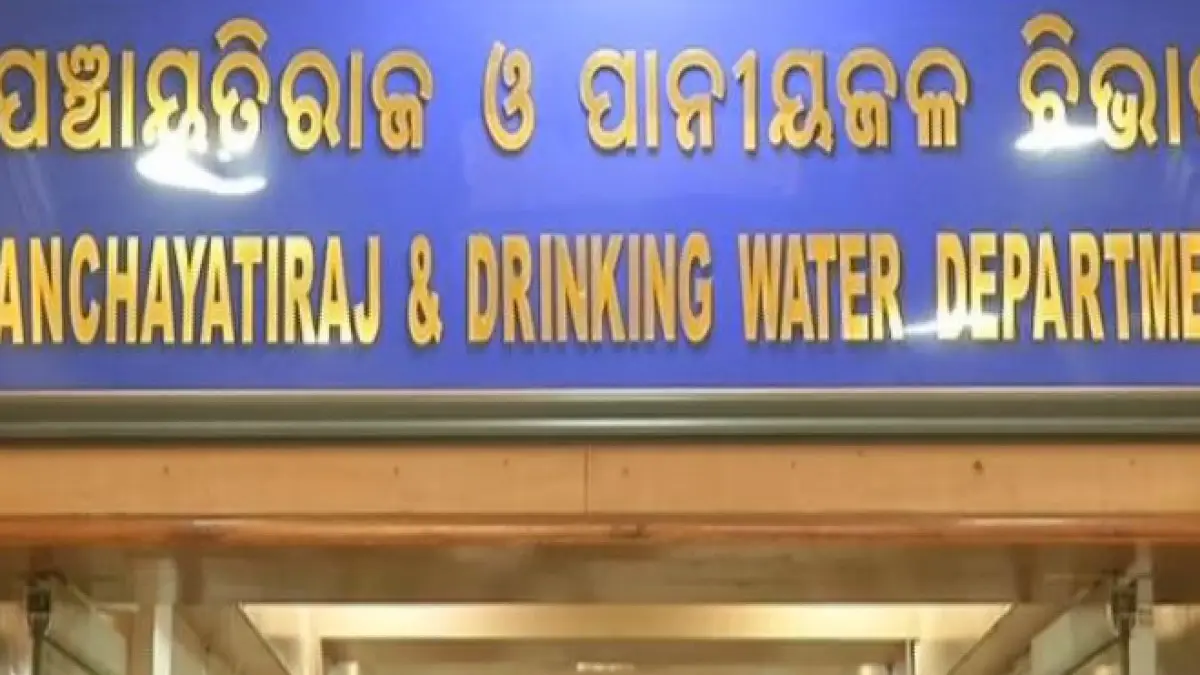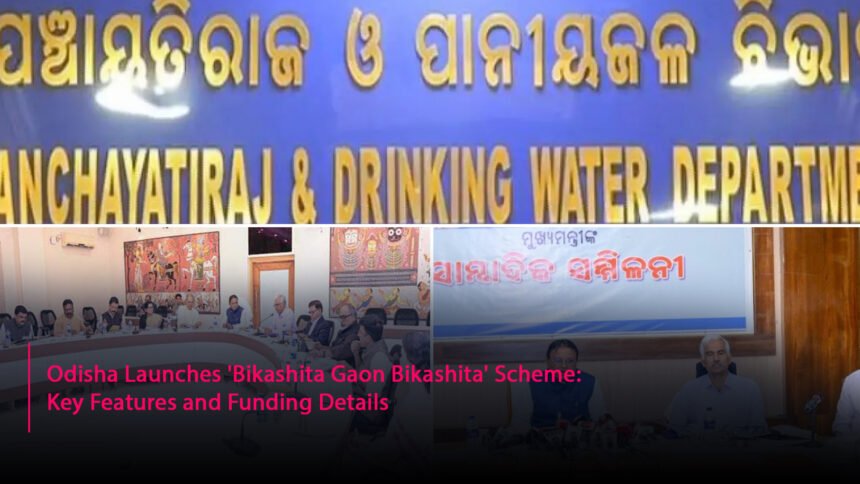The Odisha government has introduced a new initiative called ‘Bikashita Gaon Bikashita Odisha’ to improve rural infrastructure, uplift the living standards in rural areas, and promote economic development across the state.
This scheme is designed to address significant gaps that hinder rapid and inclusive growth in rural Odisha by implementing various sustainable development projects. It aims to enhance different types of infrastructure, serving as a pathway to achieve the goals of a developed Odisha.
The ‘Bikashita Gaon Bikashita Odisha’ initiative emphasizes the importance of rural regions in driving Odisha’s economic, social, and cultural progress. It acknowledges that villages are crucial to the state’s economy, with most residents involved in agriculture and related sectors. Improving rural connectivity is essential for both economic growth and social cohesion.
To achieve this, the scheme prioritizes providing road access to unconnected villages and developing both inter-village and intra-village roads. It also plans to implement community projects based on local needs to create lasting assets for these communities.
Key Features of this Scheme:
Infrastructure Development: The scheme will focus on building roads, bridges, and culverts in rural Odisha, including connecting remote villages in difficult terrains like PVTGs and Naxal-affected areas.
Project Inclusion Criteria: Roads requiring upgrades will be selected based on factors such as population density, economic activity, and geographical challenges.
Collaboration with MGNREGS: Road construction up to formation level can be done in conjunction with the Mahatma Gandhi National Rural Employment Guarantee Scheme (MGNREGS), depending on soil availability.
Variety of Road Projects: Different types of road constructions, including blacktop, cement concrete, and paver block roads, will be undertaken.
Forest Area Improvements: Roads in villages located within forest reserves will be improved to meet metalling standards.
Funding Limits: A maximum of 35% of the total funds allocated can be used for road projects.
Cross Drainage Works: Standalone drainage projects with necessary access roads will also be included based on local requirements.

Completion Assurance: Funds will be allocated to ensure that road projects are completed within the budget.
Technical Guidelines: Comprehensive guidelines will be established to set quality standards for constructing roads, bridges, and culverts.
Civic Amenities Construction: The scheme includes building community facilities such as community centers, bathing ghats, market sheds, and drainage systems where needed.
Religious Infrastructure: The construction of facilities like Bhoga Mandaps and cultural centers will provide essential services for worshippers across all faiths. Toilets and water supply may be developed through initiatives like the Swachh Bharat Mission.
Water Management Projects: The scheme will also focus on creating and revitalizing community ponds and water harvesting systems.
Educational Infrastructure Improvement: Enhancements in educational facilities will include building additional classrooms and modernizing existing structures.
Reading Room Development: Reading rooms equipped with electricity and internet will be established in densely populated areas for students preparing for exams.
Sports Facilities Creation: The initiative aims to develop low-cost sports infrastructure for outdoor physical activities.
Micro Tourism Development: The scheme allows for improvements at identified micro tourism spots based on local needs.
Innovative Community Projects: Up to 5% of the total budget can be allocated for new innovative community projects.
Project Integration: Similar projects from various departments can be integrated into this scheme for better resource utilization.
Minimum Project Cost Requirement: Projects must have an estimated cost of at least ₹3 lakh to qualify for funding under this scheme.
Continuation of Previous Projects: Projects initiated under the previous Ama Odisha Nabin Odisha scheme can continue if at least 20% of expenditure has already been incurred.
Financial Allocation:
Funds will be allocated strategically with a focus on priority projects that support underdeveloped areas to ensure fair development across the state. Zilla Parishads will receive funds which they will distribute to Blocks/Gram Panchayats based on their population. 40% of funds will specifically be allocated for ITDA Blocks. All projects undertaken should be completed within the financial limits set forth.
Source of Funds:
The financial resources for this state-specific scheme will come from the state budget. The Panchayati Raj & Drinking Water Department will ensure necessary budget provisions are made available for this initiative.
Project Selection Process:
A participatory approach starting from Gram Sabhas will ensure that projects meet genuine community needs. A Five-Year Perspective Plan developed through Gram Sabha recommendations will guide project selection at the Block level. Each Block will prepare an Annual Action Plan based on this perspective plan. A Technical Committee at the Block level will evaluate project feasibility, admissibility, and financial limits. The Panchayat Samiti will forward the evaluated project list to the District Collector for final approval.
Approving Authority:
The Collector of each District will approve the Five-Year Perspective Plan, Annual Action Plan, and project lists submitted by the Panchayat Samiti. Administrative approvals and technical sanctions will follow established Panchayat Samiti Accounting Procedure Rules from 2002 and any amendments thereafter.
Fund Sanctioning and Release:
Funds will be transferred from the PR & DW Department to the accounts of Zilla Parishad where they can draw funds through Grants-in-Aid bills. Expenditures related to program management activities such as meetings, social audits, site inspections, data entry, and other administrative tasks will follow due financial procedures under an IEC budget head. The government retains the authority to adjust financial allocations in exceptional circumstances.
Project Execution:
The Panchayat Samiti is responsible for executing projects according to established accounting procedures. Collectors are tasked with selecting suitable agencies for project execution and ensuring proper maintenance post-completion. No pro-rata charges apply if work is executed by departmental means. Projects must adhere to OPWD Code during execution. Technical assistance guidelines from relevant departments must be followed during project design and specifications.
Monitoring and Supervision:
Regular monitoring measures at both state and district levels will ensure effective implementation of the scheme. The District Collector oversees supervision and monitoring progress within their jurisdiction. The CDO-cum-EO of Zilla Parishad provides necessary support during reviews. The Collector conducts regular assessments regarding fund utilization and project progress. Social audits are mandated for effective oversight of each project’s implementation.
Accountability:
The community plays a vital role in monitoring quality standards for assets created under this scheme since these durable assets are primarily community-based projects that require ongoing maintenance.
Fund Utilization Reporting:
The CDO-cum-EO of Zilla Parishad must submit Utilization Certificates (UC) quarterly to the government along with monthly reports detailing each project’s progress.
Transparency Measures:
A web-based Management Information System (MIS) along with a mobile app will facilitate real-time project monitoring. To ensure transparency throughout project execution, various construction phases—before commencement, ongoing work, and completion—will be geotagged via a mobile app and uploaded onto a dedicated web portal. The Panchayati Raj & Drinking Water Department has authority over clarifications needed regarding guidelines or modifications as required; these guidelines take effect immediately upon issuance.
The ‘Bikashita Gaon Bikashita Odisha’ scheme represents a significant step towards enhancing rural infrastructure in Odisha while promoting inclusive growth through targeted development initiatives aimed at improving connectivity, civic amenities, education infrastructure, and community engagement across various sectors within rural areas of the state.










